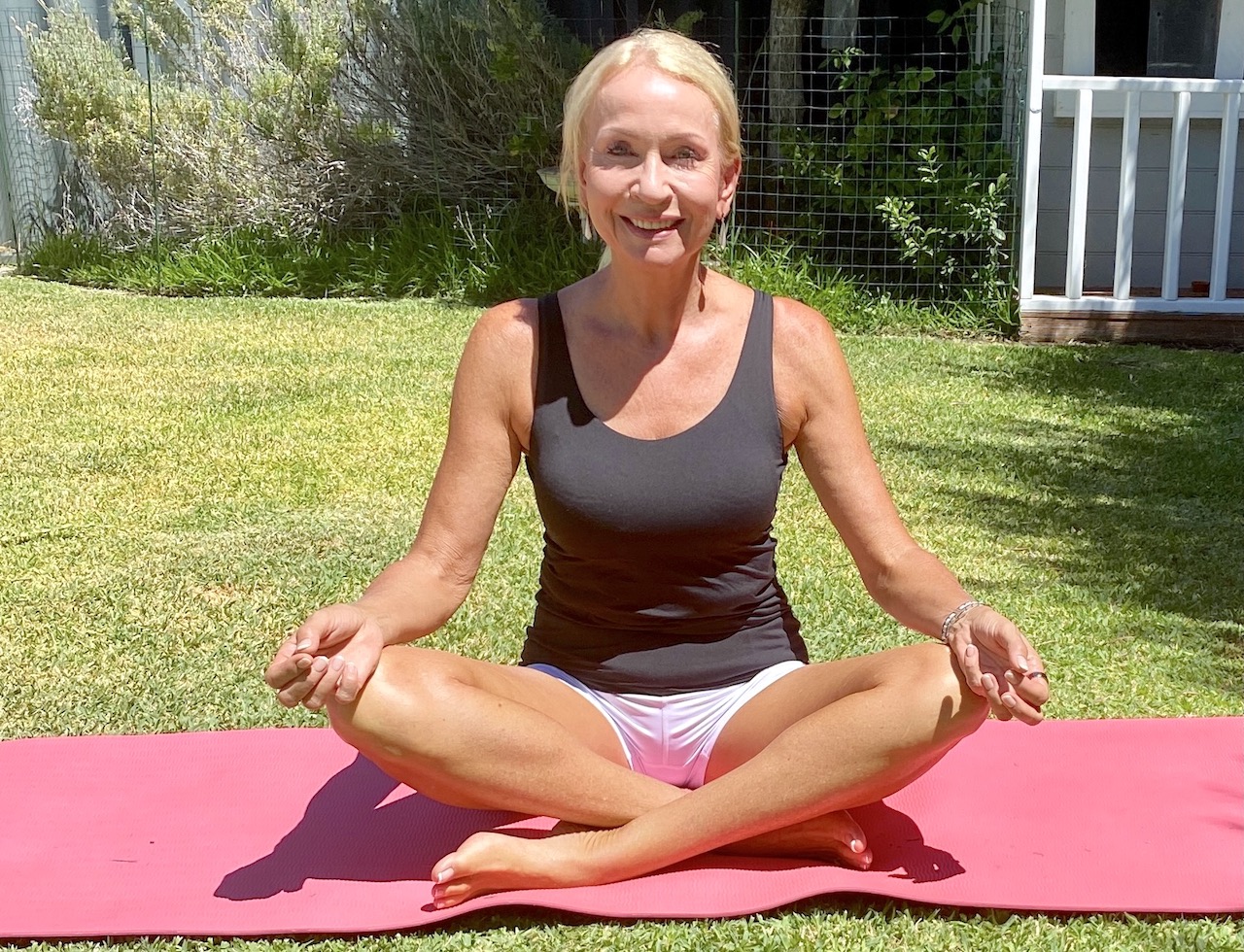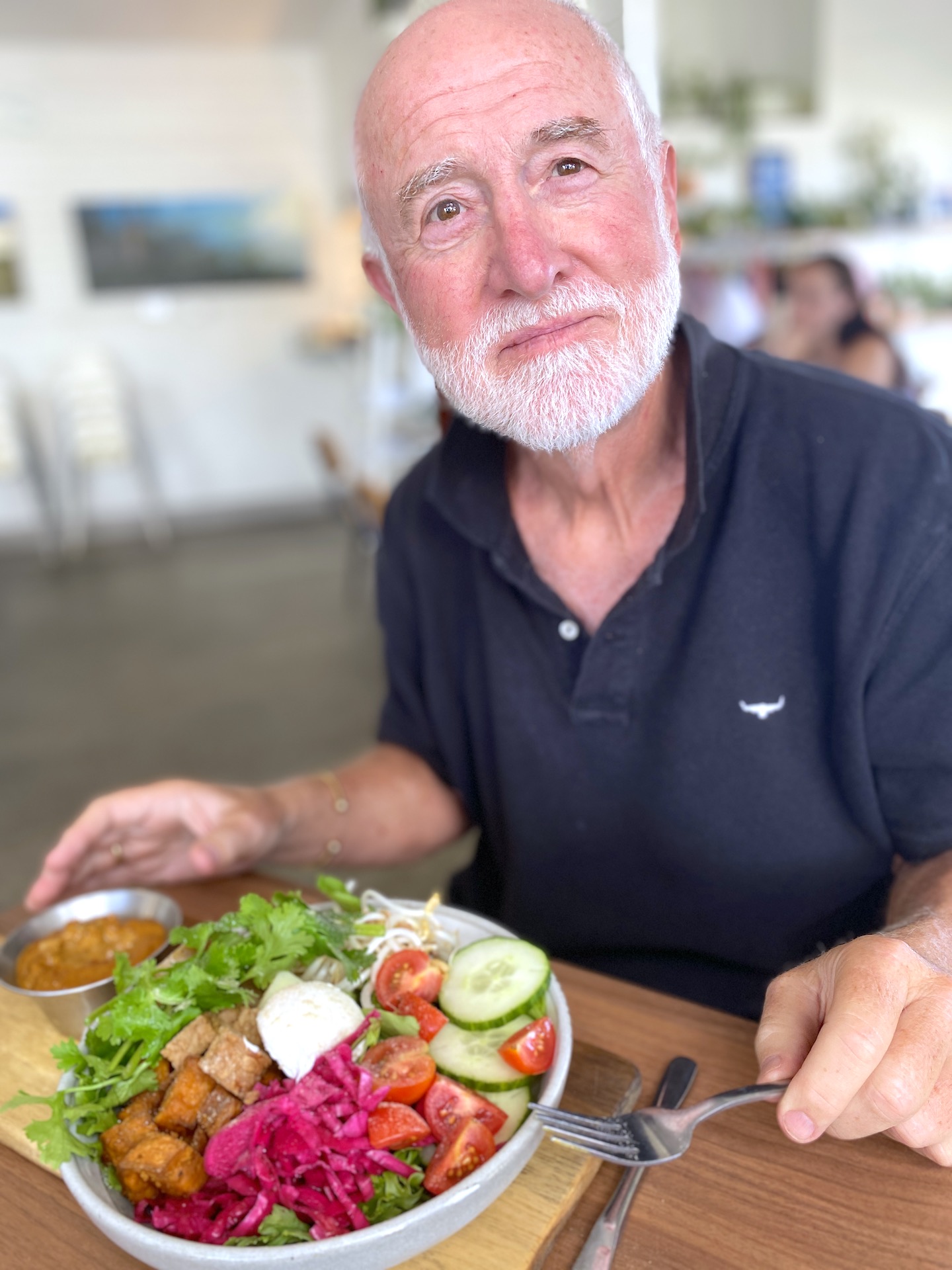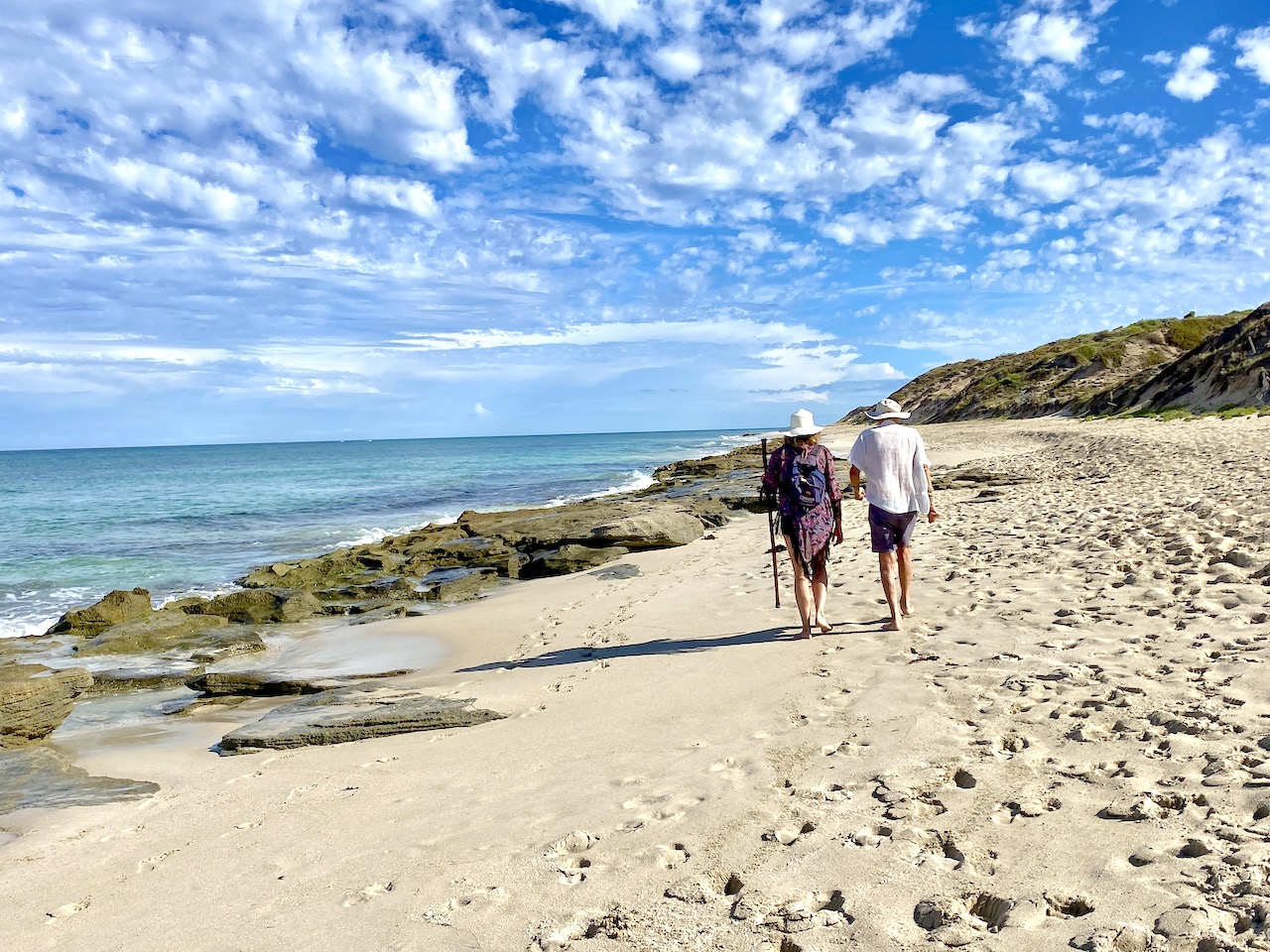Are you gluten intolerant? Gluten intolerance is more widespread than previously thought, and gluten may be harming people in ways they never dreamt of. VERNE MAREE spills the beans on what going gluten-free did for her.
A few days ago, I did a gazillion squats and lunges in a Les Mills Bodypump class at Craigie Leisure Centre, followed by a yoga session. The next day, I jogged 8km along our hilly coastal path. The morning after that, I walked for miles along Burns Beach, basking in the perfection of the day.
So what? Well, just a couple of years ago, that little lot would have seen me limping around, moaning about sore hips and possibly swallowing a bunch of anti-inflammatories.
What’s changed since then? Read on to find out!


How to Become Gluten Intolerant
US comedian and social commentator JP Sears had me in fits of giggles with his video How to Become Gluten Intolerant.
“Being gluten-intolerant is the hottest trend in the New Age community since we found out we don’t have to eat animals. Gluten is the new animal you don’t have to eat.”
What’s more: “Being gluten-free used to be a luxury reserved only for those who are intolerant to gluten. But, with this cutting-edge educational video, you can become gluten-intolerant too, whether or not you’re actually intolerant to gluten.”

Here’s a fantastic opportunity, he explained, to “assert your dominance on the lives of everyone around you”, which in itself will improve your life. Click on this link for detailed instructions.
Two years ago I would have laughed just as loudly, but without a trace of irony.
My personal journey
(No one just does anything more, do they? Everything is a journey. You don’t just have a baby – you experience a journey to motherhood. You can’t just get better – you undergo a journey to wellness. Most especially you don’t learn how to practise yoga, god forbid! – yoga is always a journey… and, what’s more, a never-ending one.)
JP Sears would be proud of my progress on the gluten intolerance journey! I, too, used to regard the gluten-free movement as a baloney bandwagon that food faddists had hitched on to: partly to indulge their inner hypochondriacs, but mainly to annoy their friends and families.
I’ve had to change my mind. And that’s because – spoiler alert! – drastically reducing gluten has completely cured two decades of chronic discomfort that no doctor, orthopaedic specialist, chiropractor or anyone else had been able to explain, let alone cure.
One fine day in the middle of 2020, about three months after launching our coincidentally gluten-free Low Carb, No Crap® lifestyle, I realised that my hips were fine. After two decades of nursing them, I was again able to run, walk as far as I liked and practise yoga with impunity.
It’s true that LC,NC eliminated alcohol initially – but I’d re-introduced wine after the first month (only for myself; Roy continued to abstain), so the inflammation wasn’t being caused by that. I can only put it down to a drastic reduction in gluten.

What is gluten, anyway?
Gluten is a protein in wheat – present in particularly high amounts in modern-day dwarf wheat – but also in barley and rye, that inflames the gut, causing gaps in the tight junctions. Popularly known as leaky gut, this state of affairs allows undigested particles to illicitly enter the bloodstream, where they wreak havoc on the immune system and more. Here’s a fuller explanation of leaky gut – from functional medicine guru Chris Kresser – detailing how it happens and why it’s so very, very bad.
My awareness of gluten as a possible problem for myself was first sparked in 2019, when the excellent Dr Seema Maharaj in Durban diagnosed me with the auto-immune disease known as Hashimoto’s thyroiditis. This was on the basis of a blood test that revealed rampaging thyroid antibodies.
I feel pretty good, I protested: I had come to her only for hormone balancing, not to overturn the rest of my life. But she warned that those thyroid antibodies, if left unchecked, definitely would in due course damage my thyroid and pave the way for other even nastier autoimmune conditions like lupus, multiple sclerosis, rheumatoid arthritis and Guillain-Barre syndrome. This was not something to be ignored.
Leaky gut is one of three essential requirements for Hashi’s, says Izabella Wentz – a fabulous human being who went on a mission to research this condition and cure herself. See here for her website with advice on her book Hashimoto’s Protocol; I have it on my Kindle.

Here is another great article from Chris Kresser, detailing dietary strategies to deal with Hashimoto’s. (Despite having been there, I often wonder how we found out anything in the pre-internet era.)
Following the advice, I went on a month-long elimination diet in 2019 – no gluten, oats, eggs, dairy, legumes, corn, nuts, sugar, coffee or alcohol. We were in Durban at the time, surrounded by ultra-sociable friends, so it wasn’t easy. Unfortunately, it didn’t teach me anything, because nothing changed had in the way I felt… I already felt fine, as far as I was concerned. The only difference was that no alcohol meant no hangovers.
It never occurred to me then that my diet could have anything to do with sore hips: that had to be mechanical, right? Wrong.
Gluten intolerance is a spectrum
It seems that gluten intolerance exists on a spectrum. At the far end of the spectrum is coeliac disease, an autoimmune disorder where the tiniest smidgen of gluten – even from, say, toaster crumbs – triggers severe digestive symptoms such as stomach aches and foul diarrhoea and can lead to dangerous complications.
At the other end of the spectrum is someone like me who can apparently eat gluten and live normally. Unless you did the thyroid antibodies test, you might never guess there was any degree of intolerance. And remember, no ordinary doctor is going to associate random symptoms like joint pain with gluten – he or she will likely give you NSAIDS and send you on your way after seven and a half minutes. (Ka-ching. Next, please!)
Somewhere in the middle of the spectrum is granddaughter Holly; not only does gluten gives her a really sore tummy, but unfortunately dairy causes debilitating mouth-ulcers, a full-body rash and other painful symptoms. That’s tough, but manageable – if you know what you’re doing, as her mother, our daughter-in-law Carrie, fortunately does.

Carrie has learnt that three things are required for coeliac to take hold: (i) the coeliac gene, (ii) SIBO (small intestinal bacterial overgrowth) or dysbiosis, and (iii) the presence of gluten. Holly has the gene and she has SIBO – Carrie suspects it was brought on by an unavoidable round of antibiotics to treat an ear infection that Holly picked up in the summer of 2019 while swimming with her sister and me off the side of our boat, Karanja, in the river Tarn in Moissac, France. The trick now is to keep gluten out of her diet.


SIBO is notoriously difficult to overcome – and for a child it can be even trickier. Treating the symptoms is one thing, but identifying the trigger or root cause is another. Also, as it’s not yet widely recognised or understood by Western medicine, you may have to do a lot of the groundwork on your own. (Author of Healthy Gut, Healthy You, Dr Michael Ruscio, explains it expertly here.)
Though Holly is an unusual child whose favourite meal is salmon and avocado (yay!), she has the usual desire for ice cream and other sweet treats… and it’s no fun for a parent to have to completely deprive an eight-year-old of these things. What’s more, you can’t police their diet around the clock, especially as they grow older and start school. Sugar and processed flour are highly addictive, and a child will hunt it down one way or another!
Fortunately, almond-milk or coconut-based ice creams are available if you know where to look. And Big Food lost no time in coming up with gluten-free versions of their sugary cookies and other high-carb, nutrient-poor products. As long as you don’t mistake these for health foods, they do sweeten young Holly’s life and keep her from feeling left out.*

* No short cuts
It’s not just a matter of choosing gluten-free Wonderbread and Oreo cookies. That’s because gluten-free crap is still crap. (Sorry!)
Even young Holly knows this. This morning, while I was taking these photos of her, she explained to me what real food is. “It’s the food we get from animals or from nature, that gets picked off plants or dug up out of the ground.” Attagirl!
As mentioned earlier, I went gluten-free almost by mistake, merely by following my own Low Carb, No Crap® eating plan – and even that was largely to support Roy in his inspirational 35kg weight-loss and metamorphosis.
In summary, this entails getting hold of the widest variety possible of the best quality ingredients you can afford, and cooking meals from scratch whenever you can. As it turned out, a month without gluten wasn’t long enough to fix the problem. For me, it probably took about three months.

Moody cow syndrome?
Are you just a moody cow – or could gluten be affecting your frame of mind? Digestive issues are some of the most obvious symptoms of gluten intolerance, but it’s not always that clear cut. Other less easily identifiable symptoms include mood swings, depression, difficulty concentrating, unusual fatigue, migraines, joint pain and infertility.
Maybe you’re not just “getting older”. Maybe you don’t have to accept the onset of aches and pains as unavoidable. And maybe you’re not just a moody cow! Unless you give it a try – like I did – you’ll never know.

Is avoiding gluten hard to sustain? No, not when I think of the alternative aches and pains! Also, being low on the gluten intolerance spectrum means I can still occasionally indulge in traditional pizza or birthday cake without suffering the immediate consequences of someone who’s a lot more sensitive to gluten than I am.
Next up, who knows? I keep on promising something on magnesium, but I’m waiting for a suitable self-portrait from the Magnesium Queen herself, my friend Yvette.




